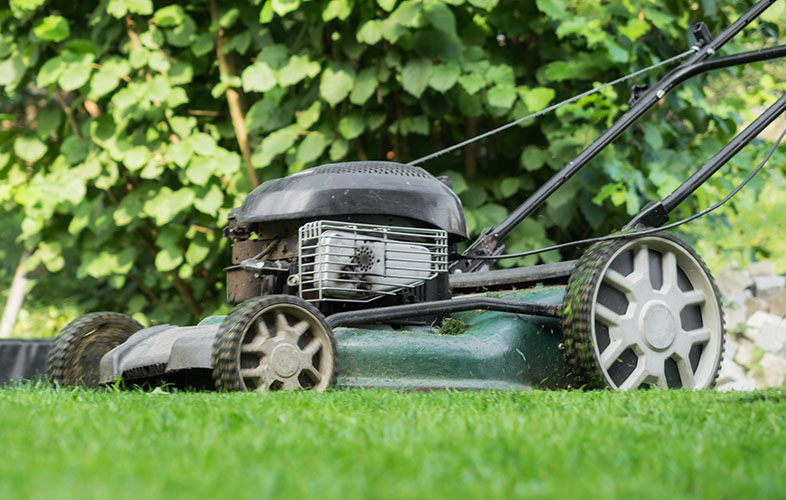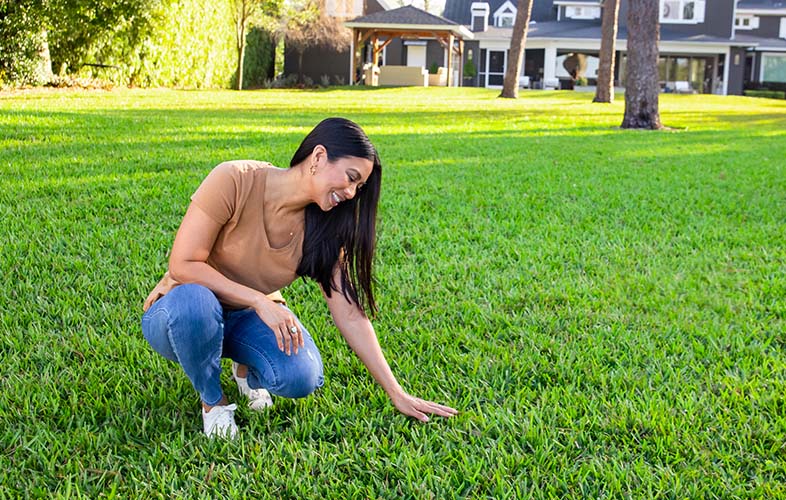The best course of action to take with your fallen leaves is mulching and composting. This will not only help your overall lawn health in the long-term but also provide environmental benefits.
Dry and chopped-up leaves make for great mulch. Once they are dry, use a lawn mower to chop them into small pieces. Dried leaves as mulch break down more quickly and shred easily. When mowed properly, leaves and grass clippings add nutrients to the lawn, improve the soil, and save time, money, and the environment.
Similarly, composting is also a great way to use fallen leaves to your advantage. It is a fantastic method to decrease waste, enrich soil, and help grow plants and healthy lawns. Composting leaves and grass is one of the best things you can do for your lawn.
To learn more about how to compost your leaves into a fertilizer for the Spring season, visit our step-by-step composting guide.
Fall in love with your lawn again with our tailored solutions to suit all your lawn care needs – all backed up with science-driven expertise. Whether you need a quote, have questions about your lawn, or require more information on raking leaves, get in touch with us today on 1-844-567-9579.









Facebook
X
Youtube
Copy Link
Email